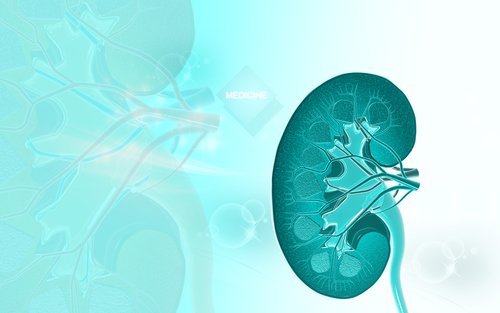Researchers Review Link Between Renal Disease and Mitochondrial Disorders

Kidney involvement in primary mitochondrial disorders (MIDs) is more frequent than anticipated and often is an important factor in the outcome of those with MIDs, a recent review found.
The study, “Renal manifestations of primary mitochondrial disorders,” published in Biomedical Reports, stated that this link often goes unrecognized. Renal symptom management among MIDs patients requires further study and improvement, it added.
Mitochondrial disorders often affect multiple tissues and organs, including muscles, the central nervous system, peripheral nerves, the heart, lungs, the gastrointestinal tract, kidneys, bones, and skin. The extent to which each organ is affected depends on the mutated gene and the associated disease.
Kidneys are significantly involved in several mitochondrial disorders. Renal symptoms that result directly from MIDs are classified as primary, while those that are caused by the dysfunction of other organs are classified as secondary. Cardiac involvement, such as atrial fibrillation or heart failure, as well as mitochondrial diabetes, mitochondrial myopathy, and mitochondrial epilepsy are examples of primary MIDs involvement that causes secondary renal symptoms.
Primary renal disease also is associated with MIDs, such as acute or chronic renal failure, renal cysts, Bartter-like syndrome, Toni-Debré-Fanconi syndrome, and benign or malignant neoplasms, among others.
Renal disease prevalence is greater with mitochondrial encephalomyopathy, lactic acidosis, stroke-like episodes, Kearns Sayre syndrome and mitochondrial depletion syndromes, according to the review.
Kidney diseases in MIDs are diagnosed with blood tests, urine analysis, imaging, functional tests, and biopsies. They can be treated with the same therapies available for non-mitochondrial diseases. However, doctors should avoid treatments for MIDs patients that could be harmful to mitochondria.
No clinical trials have addressed treating MIDs-related kidney symptoms, and treatment guidelines for these patients are lacking.
“Antioxidants, vitamins, and other co-factors may be of additional benefit for renal disease in MIDs, but, to the best of our knowledge, no systematic studies have been performed addressing these issues,” the review’s authors, from Austria and Brazil, said.
The severity and outcome of renal disease vary according to disease type and the mutation responsible for the MIDs, but this area also requires further study.
Animal models of MIDs could help researchers understand the underlying functioning of renal symptoms, test potential treatments, and improve MIDs treatment options.
“The frequency of renal involvement in MIDs is probably underestimated,” the authors wrote. “Thus, renal manifestations of primary MIDs require recognition and appropriate management, as they determine the outcome of MID patients.”






